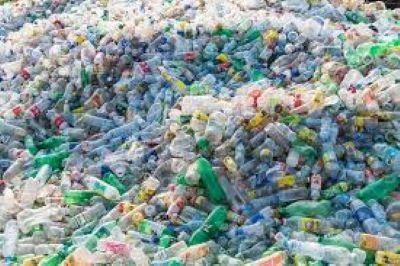The French government has called for stronger global cooperation—particularly between African and Western nations—to combat the growing threat of plastic waste in the world’s oceans.
The Deputy Ambassador of the French Embassy in Nigeria, Jean-François Hasperue made the appeal during a plastic waste awareness programme held on Wednesday at the French Institute in Abuja.
Hasperue emphasized that plastic pollution is one of the most urgent environmental challenges of our time, with marine ecosystems facing severe consequences.
“There is a need for Nigeria, the rest of Africa, and the global community to mobilise resources, policies, and partnerships to protect our oceans from the dangers of plastic waste,” he said.
He noted that the impact of plastic—ranging from large debris to microplastics found in marine organisms—is increasingly evident and deeply alarming.
“Our panellists explained that microplastics consumed by fish in Lagos lagoons may end up on dinner plates in Asia, due to global seafood trade. This clearly illustrates that ocean pollution is a global problem requiring a global solution.”
Hasperue highlighted the importance of the United Nations Conference on Ocean currently taking place in Nice, France (June 9–13), and pointed to the Biodiversity Beyond National Jurisdictions (BBNJ) agreement as a significant step toward enhanced international cooperation.
“We expect to reach the 60-country ratification threshold for the BBNJ by the end of this week, allowing for its implementation starting January 1, 2026.”
The deputy ambassador explained that France’s strategy includes both top-down global action and bottom-up community engagement, with Nigeria serving as a key focus area. As part of this, the French government is hosting a series of awareness activities throughout June across six Nigerian states.
“We’re running not less than 11 events this month in Nigeria. These include panel discussions, environmental campaigns, and collaborative university projects to raise awareness and inspire change,” he said.
France is also investing in Nigeria’s educational institutions to promote plastic recycling and environmental innovation. Hasperue revealed that the French Embassy has allocated €100,000 (approx. ₦750 million) to support sustainability projects in Nigerian universities.
“Two micro-recycling plants will be delivered to Nile University in Abuja and UNILAG in Lagos, enabling them to recycle plastic waste on campus. In addition, we are funding projects in five other universities.”
The Attaché for Scientific and Higher Education Cooperation at the French Embassy, Sebastien Bede further elaborated on this initiative, known as the French Embassy Fund, which is focused on supporting practical and scalable solutions to plastic waste on university campuses.
“This project is threefold—raising awareness, building technical capacity, and implementing real solutions to plastic waste within academic environments,” Bede explained.
Hasperue concluded by underscoring the importance of both policy change and public awareness in tackling plastic pollution:
“Plastic may have once been a solution, but it has now become a massive problem. We must rethink how it is produced, recycled, and managed to ensure it no longer harms ecosystems and communities.”


